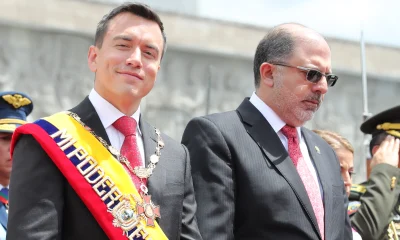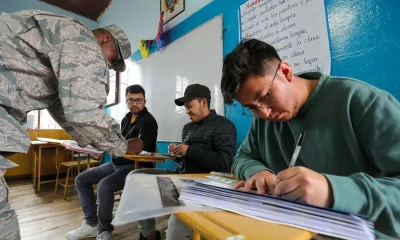International
Noboa assures that Ecuador has a new face with more security after six months in office
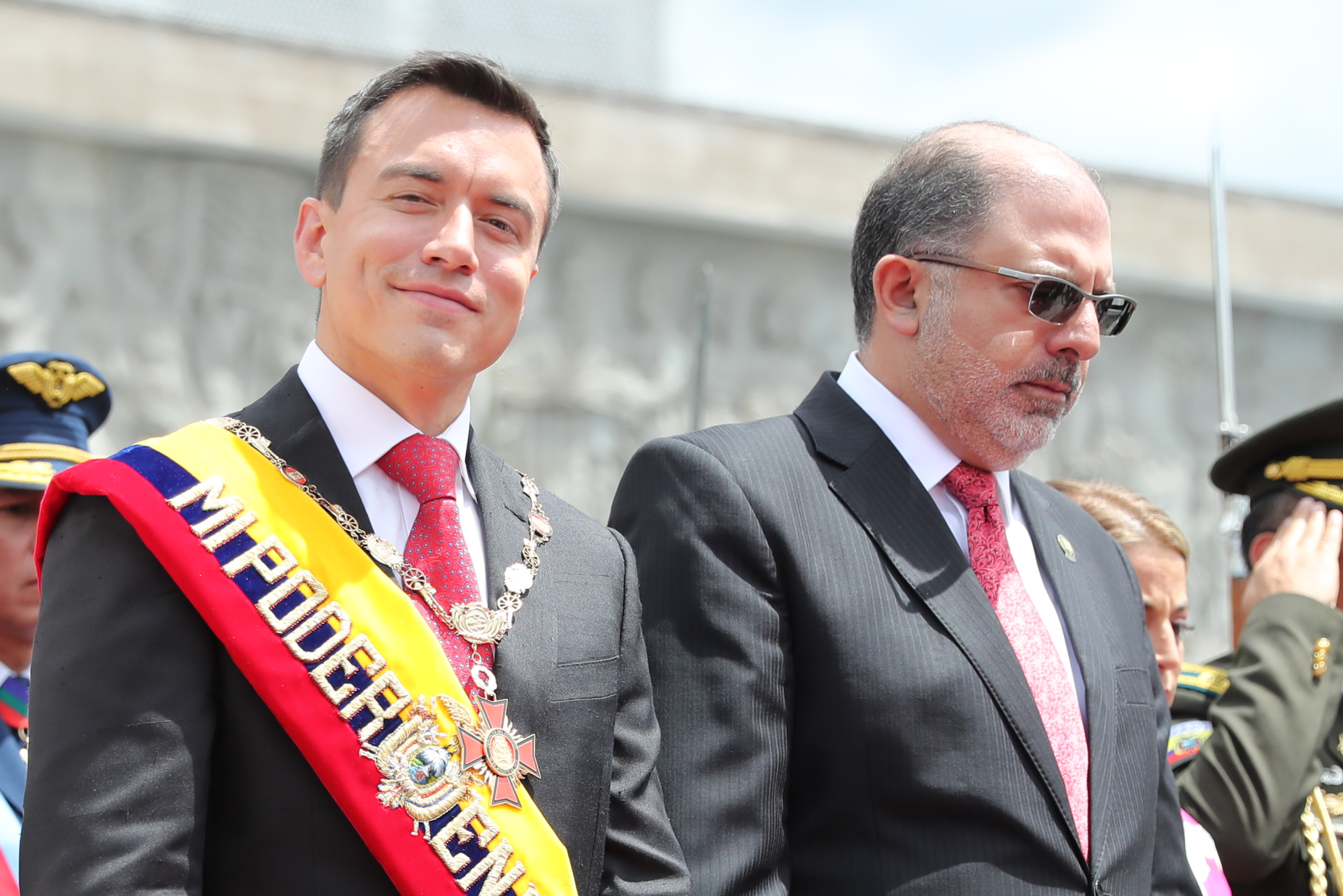
The president of Ecuador, Daniel Noboa, assured this Friday in his first report to the nation that, in the six months of his mandate, he has achieved a country with a new face thanks to efforts to combat insecurity and for the recovery of institutionality.
In his message to the National Assembly (Parliament), a day after having served six months as head of state, Noboa asserted that he received a country “with fear and without hope,” so he had to take “hard” decisions that other administrations did not dare, in search of a safe country, open to investments, job creation and to “guaranteee the future of all.”
The president said that last January 9 will be a date that the country will not forget, having revealed the scope of “the horror of terrorism”, with a series of attacks and violent actions of organized crime such as the taking of the TC Televisión channel by a group of armed men and simultaneous riots in various prisons with about 200 hostages.
That day, on which he again denounced an attempted coup d’état against him, Noboa declared the “internal armed conflict” against 22 criminal gangs linked to drug trafficking, whom he called terrorists.
The actions of the Government, he said, seek to “start building a country where tranquility and progress are the norm and not the exception.”
He highlighted the commitment and sacrifice of the security forces to fight the mafias that “have accomplices and allies, at all levels of the country: public institutions, public companies, local governments, in our neighborhoods, they are everywhere.”
Despite the changes he reported about, Noboa said that the fight for “the ‘New Ecuador’ has only begun,” he pointed out that social transformation and security are also achieved “with employment, education, with services and empathy” with social actions that reveal “the face of a new Ecuador that grows.”
In that line, he also mentioned the efforts in the energy field of his Government, which in April had to face blackouts in the face of a serious electricity crisis, due to the drought of one of the main hydroelectric complexes in the country.
“We are working very hard to solve the energy crisis, in such a way that Ecuadorians, in the future, do not have to go through more energy rationing. In other words, we are cleaning up what those of the past mudded,” he said.
In the economic area, Noboa mentioned the existence of 105,000 young employment places, the ratification of two trade agreements (with China and Costa Rica) and the reduction of 1,000 points in the risk premium.
Noboa claimed to have recovered the country’s institutionality by asserting that “the new Ecuador does not deal with drug trafficking, drug policy, terrorists or any of its historical costumes.”
“The new Ecuador also does not give in to external pressures or even from citizens who call themselves Ecuadorians and even want their country to be sentenced,” he said, without referring to any specific person, although the day before he sent on social networks “to cry to tears” to former President Rafael Correa for his statements regarding the crisis with Mexico.
Noboa did not speak in his speech about the assault on the Mexican Embassy in Quito in April, to capture Jorge Glas, former vice president of Rafael Correa, which caused the breakdown of relations with the Mexican Government, as well as the almost unanimous condemnation of the international community.
After that assault, Correa considered that the country should receive pressure from the international community at the political and legal level as a precedent so that a similar situation does not happen again.
Noboa committed himself to his compatriots to “not go back” and “never stay in the problem or in the comfort of the excuse,” but to move forward to “find and travel clean roads that allow the problems of Ecuadorians to be solved.”
And he explained that he follows the lessons that formed his generation: “to be strong so that no one defeats you, to be noble so that no one humiliates you, to be humble so that no one offends you and to continue to be you so that no one forgets you.”
“In just six months we are achieving what other governments did not do in two, nor four, or ten years,” he said.
International
New York Announces First 2,000 Seats in Universal 2-K Program
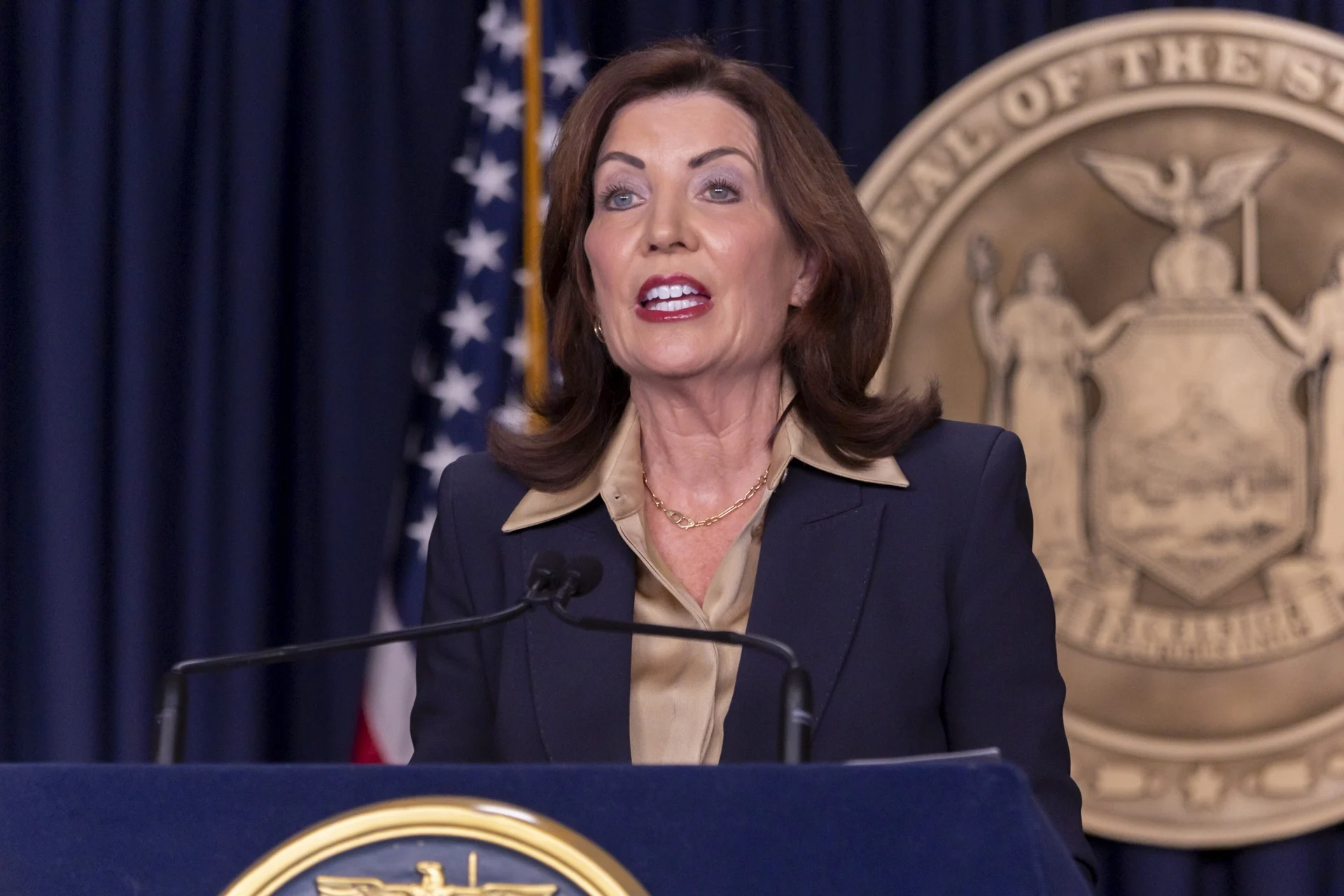
The Governor of New York, Kathy Hochul, and New York City Mayor Zohran Mamdani took another step today in their universal early education agenda by announcing the communities that will have access to the first 2,000 seats in the new 2-K program this fall — an initiative backed by a $73 million investment.
The funding is part of the $1.2 billion package previously unveiled by Hochul to strengthen child care and early childhood education across the city, one of the key campaign promises of the now Social Democratic mayor.
At the time of the announcement, the governor also outlined additional funds to reinforce the existing 3-K early education infrastructure, a program launched under former Mayor Bill de Blasio (2014–2021).
When the 2-K initiative was introduced in January, Mayor Mamdani explained that its first phase would offer 2,000 seats, with the goal of eventually expanding into a universal program — a commitment supported by the governor.
State investment in child care and preschool services is expected to increase to $4.5 billion by fiscal year 2027.
Among the first communities set to benefit from the 2,000 seats are Upper Manhattan and Inwood — areas with large Dominican populations — as well as Fordham and Kingsbridge in the Bronx, a borough with a Latino majority.
In East Brooklyn, Canarsie, Brownsville, and Ocean Hill will also be included. Meanwhile, Ozone Park and the Rockaways are among the neighborhoods that will see the rollout of the 2-K program.
International
Warner Bros. Developing First ‘Game of Thrones’ Movie With ‘Andor’ Writer
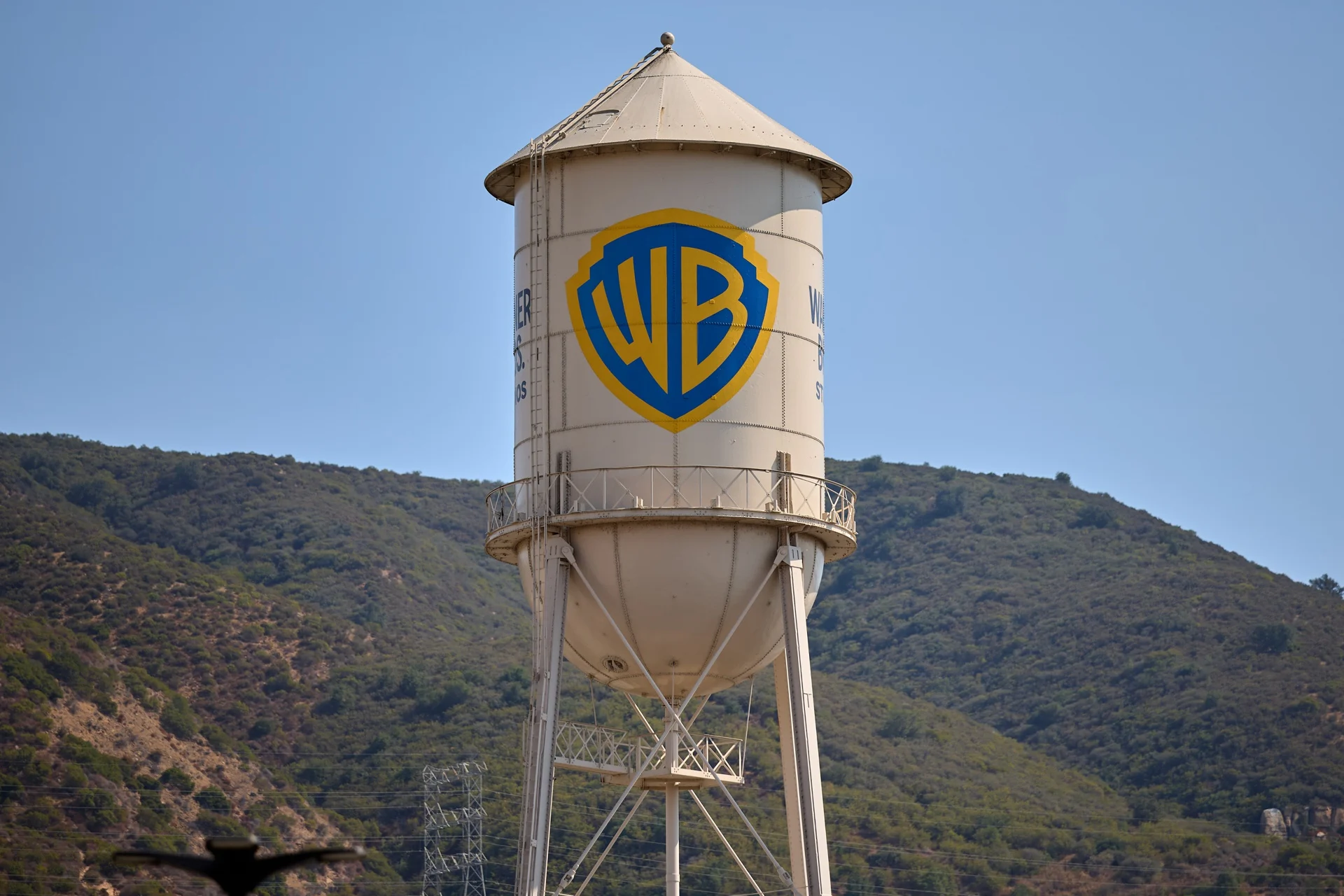
Warner Bros. is developing the first feature film based on the hit saga Game of Thrones, with Beau Willimon — screenwriter of Andor — attached to direct, according to a report published Tuesday by Page Six.
The project, currently in early development, will focus on the conquest of King Aegon I Targaryen. A separate television adaptation centered on the same historical storyline within the franchise is also in early stages at HBO.
However, the outlet noted that it remains unclear whether the film will move forward following the recent acquisition of Warner Bros. Discovery by Paramount Skydance.
If the merger is finalized, the movie could potentially be shelved, although that scenario appears unlikely given that the Game of Thrones franchise remains one of HBO’s most valuable and beloved properties.
After six seasons adapting the work of George R. R. Martin, the platform expanded the universe with House of the Dragon, a prequel series set 200 years before the events of Game of Thrones that explores the history of House Targaryen.
International
Spain’s Prime Minister to Address Nation Amid Trump’s Trade Threats

The Prime Minister of Spain, Pedro Sánchez, will deliver an institutional address this Wednesday at the Moncloa Palace regarding the escalating situation in the Middle East and recent threats directed at Spain by U.S. President Donald Trump.
The Spanish government announced that Sánchez will make a statement at 9:00 a.m. local time to outline his position on the latest developments following the U.S. and Israeli attacks on Iran.
Sánchez is expected to reiterate Spain’s reasons for opposing the use of U.S. military bases on Spanish soil in the operation—an action he has already described as being outside international law—while also expressing criticism of the Iranian regime.
Government sources indicated that the address had been planned prior to Trump’s remarks criticizing Spain’s stance. However, following those comments, Sánchez is now also expected to respond directly to the U.S. president’s statements.
Trump has threatened to “cut all trade with Spain” and said he wants “nothing to do” with the country after Madrid refused to authorize the use of the Morón and Rota military bases in southern Spain for operations against Tehran.
The U.S. president also labeled Spain “a terrible NATO partner” and warned that “no one” would tell him he could not use the facilities.
In response, the Spanish government stated that Spain fulfills its commitments to NATO and European defense. It also warned Trump that any review of bilateral trade relations must respect international law and the agreements in place between the European Union and the United States.
-

 International3 days ago
International3 days agoIran Reports 201 Dead, 747 Injured After U.S. and Israeli Strikes
-

 International3 days ago
International3 days agoPope Leo XIV Urges End to ‘Spiral of Violence’ in Middle East
-

 International3 days ago
International3 days agoSecurity Council to Hold Emergency Meeting on Middle East Crisis
-

 International1 day ago
International1 day agoBrazil’s Supreme Court Rejects Bolsonaro’s Bid for House Arrest
-

 International4 days ago
International4 days agoTrump Floats “Friendly Takeover” of Cuba Amid Rising Tensions
-

 Sin categoría3 days ago
Sin categoría3 days agoTrump: ‘We Think It’s True’ Amid Claims Iran’s Supreme Leader Was Killed
-

 International4 days ago
International4 days agoArgentina’s Senate Reviews Milei-Backed Labor Overhaul
-

 International1 day ago
International1 day agoAnti-ICE Billboard Campaign Targets Immigration Spending in 31 U.S. Cities
-

 International1 day ago
International1 day agoTrump Warns of ‘Major Wave’ of Attacks as Iran Conflict Escalates
-

 International1 day ago
International1 day agoMexico Calls for Immediate Probe After National Dies in ICE Custody
-

 International13 hours ago
International13 hours agoSpain’s Prime Minister to Address Nation Amid Trump’s Trade Threats
-

 International13 hours ago
International13 hours agoNew York Announces First 2,000 Seats in Universal 2-K Program
-

 Central America1 day ago
Central America1 day agoPanama Canal Monitoring Trade as Middle East Conflict Disrupts Shipping
-

 International1 day ago
International1 day agoBolivia Orders Three Investigations Into Deadly Military Plane Crash
-

 Central America13 hours ago
Central America13 hours agoGuatemala’s Attorney General Fails in Bid for Top Court Seat Amid Corruption Allegations
-

 International13 hours ago
International13 hours agoWarner Bros. Developing First ‘Game of Thrones’ Movie With ‘Andor’ Writer



























